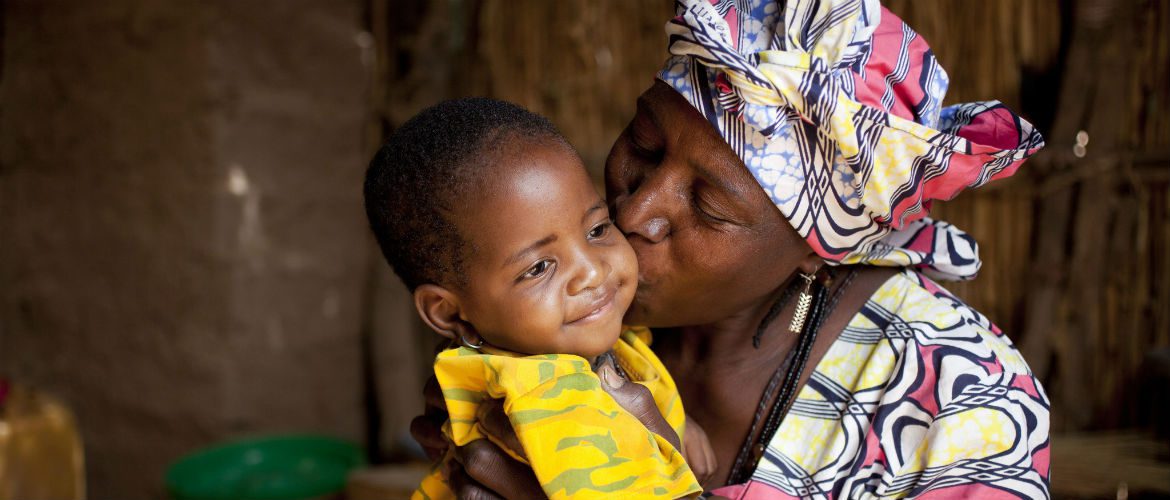
Oxfam’s work shows how it’s the simplest things — safe water, toilets, proper hygiene — that save lives and lift families out of despair.
Binta lives in Niger with her two children; her son, Razak, and her baby daughter, Fati. Like many small children in the drought-stricken country, malnutrition began to take hold.
Fati’s life hung in the balance.
“Every two or three days I had to go to the treatment centre. We were given medicine and enriched porridge for Fati,” said mum, Binta.
“She was even taken by ambulance to Ouallum District Hospital. She was admitted for ten days, then I returned home and she was referred to the local health centre here.”
But in the rural region of Agadez, there’s a serious lack of safe drinking water and toilets — even in the malnutrition centres where children like Fati will go for treatment.
Without these facilities, it’s impossible to prevent or treat malnutrition properly. Disease can cause malnutrition, and malnourished children are more likely to fall sick.
It’s a vicious cycle — one we’re determined to tackle.
Breaking the cycle of malnutrition
Over the last three years, Oxfam has reached 15,000 mother-and-child couples with water points and toilets via malnutrition centres, hygiene and health training and the provision of hygiene kits.
“Before, Fati was sick, really sick. But now she’s much better. She had terrible stomach pains, fever. When she was sick, we were given medicines, special food, aquatabs (water purification tabs) and the hygiene kit, soap,” said Binta.
“This stuff was not available before the project — before it was a very bad situation. If this stuff had not been available I would have lost my daughter to the fever. I was so worried, I couldn’t even sleep at night.”
Thanks to generous Oxfam supporters, Binta was spared the heartbreak of losing her child. But mothers like Mariama weren’t so lucky.
Children still die from preventable deaths each day. But with your help, we can save more lives with the simple things we take for granted.
“Today my little girl is well! She’s eating well and can even eat the same as everyone else, a little millet porridge, some fruit, everything she’s given!” said Binta.
Clean water is not a gift. It’s a basic human right. Donate today and you can help save lives with clean water too.